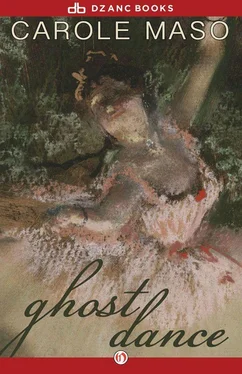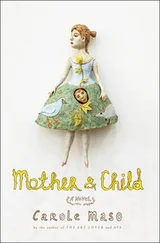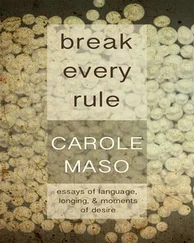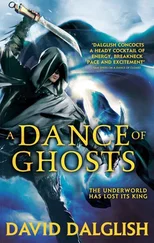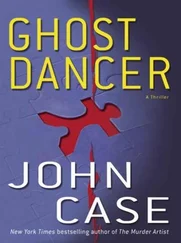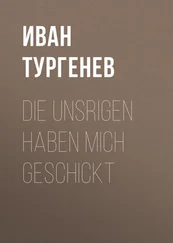“Why, yes, I suppose,” my mother says softly. “Yes.”
“He’s an Irish writer. Lived in Paris for years as secretary to James Joyce. Bert Lahr and E. G. Marshall are in it.”
“Sounds good,” my mother says.
“Brooks Atkinson reviewed it in the Times and described it as ‘a puzzlement,’ a ‘mystery wrapped in an enigma.’
“Yes, yes,” my mother thinks to herself.
“I was planning on going alone. I buy two tickets when I have the money because I like to have an empty seat next to me, but, well, surely you’d be much better than an empty seat.”
“Well, if you’re sure,” my mother says, smiling.
Already my father is cultivating his numerous eccentricities, watering them, feeding them, making room for them, so that by the time I knew him they were enormous and in full, brilliant flower.
I bet my mother liked Waiting for Godot . I’m sure she liked the idea that my father went to plays at all — daring plays, “mysteries wrapped in enigmas.” He must have seemed risky to her, exciting and intelligent and also quite handsome in his gray flannel suit — the opposite of most of the other men she had met, the presidential cabinet members and investment bankers and other miscellaneous shareholders of the future.
I hope they were happy that weekend, against that elegant backdrop of ivy and dark wood and mountains, with less than a month left until their graduation.
They dance together the rest of the night, and when my father finally looks at her full face, he is silenced by what he sees and hardly speaks at all again after that.
They must have looked lovely together as they swirled around the center of the dance floor for all to see.
“Look, Turin’s stopped talking,” Teddy says to Joel, and they shrug.
My father becomes even more lost as he hugs my mother and they listen to the silence outside, alone during the band’s break, standing precariously on the verge of their adult lives.
The band returns for one final song. And yes, my parents indeed look lovely together — like figures of marzipan poised on the top of a wedding cake. As the heat rises, my father’s new jacket blurs slightly. He seems to be melting into my mother’s arms. He breathes one last deep breath and looks for the first time directly into her bottomless blue eyes. She takes him in and he holds on tightly, as the wafer-thin dance floor slowly begins to spin.
A few notes of the guitar — the bass — my father gets up, a small flurry of motion. He smiles, swings back and forth on his heels, snaps his fingers: a trumpet, snare drum. He starts to sing with Billie Holiday.
“The way you wear your hat,” and he gestures to his head.
“The way you sip your tea,” and he picks up an invisible cup, his pinkie in the air.
A tinkling of piano.
“The memory of all that”—and extends his arms—“no, no, they can’t take that away from me”—and brings his arms to his chest.
He does a little soft-shoe on the deck of the ship. The first touches of silver gray at his temples shine in the moonlight.
“No, they can’t take that away from me.”
Sometimes, to get our father to speak, we would invent homework assignments in which it was necessary for him to answer questions. This to us seemed the ultimate in legitimacy, and we could not imagine how even our father could refuse under these circumstances to speak. We could not picture him standing like some fullback in the way of our educational progress. Surely, we reasoned, Father remembered the importance of homework. There were some things no one forgot.
We were wildly, obsessively interested in the things he would not talk about and, while at times I enjoyed imagining what he might be thinking as he drew lines on graph paper or lay on the floor staring at the ceiling, some things we wanted — needed — real answers to.
“Sit down, Daddy,” we’d begin. “There’s something we’ve got to ask you.”
“It’s important,” Fletcher would say.
“Sit down, it’s for school.” Father seemed impatient. He smiled a little but we didn’t know why. Fletcher looked behind me to see if someone else had entered the room. My father’s preoccupied look always alarmed him.
“We’ll fail if you don’t help us,” Fletcher said, and I knocked him with my elbow. The word fail , a word meant to be saved for the final summation, the best word we had, slipped out early and seemed to have no effect on him at all.
“Well, if you want the truth,” I said calmly, “we may not get into college if we don’t hand in this homework. That’s how important it is.”
My father must have chuckled slightly at this point because we weren’t anywhere near college age yet. I think I was in sixth grade that year, Fletcher was in fifth. I wonder if he detected that the whole assignment had been a fabrication. I think he must have. I hope he did.
“We need to know our family history,” we explained, “you know, all about the relatives, who they were, what they were like, if they had a job, what it was,” we said as casually as we could. “We need information.”
“Make up whatever you like,” he said. “Really, I don’t mind.” He was smiling.
Fletcher was already exasperated. “But we need the truth, Dad,” he said, “or we’ll fail.” There was that word again. “We’re serious.”
My father put on his coat. “I think I’ll go for a walk, children. Please,” he said absently, patting our heads.
“Come on, you can tell us,” we said in our friendly way, as Father knotted his plaid scarf, wishing, I think, that he had a dog he might call to his lonely side.
“What’s the secret?” we yelled to him out the front door.
“Yeah, what’s the big deal?” we shouted, and our voices seemed to echo against his receding body.
“Hey, you can tell us!” Fletcher said, but Father, a brisk walker, could not possibly have heard him. Already he was far down the hill, out of reach of our voices.
He looks to the sky, then down at his feet. I le picks up a few leaves from the ground as he walks. They look to him like the hands of children, and he closes his own hand around them and crushes them.
Fletcher took out the family tree he had sent to Minnesota for. We studied it closely, each name with its own line, but finally the names were only ink on paper, they had no resonance, there was no flesh on their bones except what Fletcher and I imagined there. We stared at the page, then began our litany of questions.
“You can tell us,” we said, sitting on the window ledge watching for the figure of our father to return. “Did Uncle Louie rob banks? Was Aunt Anastasia a drug addict? And Andrew here, who was he? Did he tight in the Boer War? Was he born out of wedlock? Was his real father a drunk? No, no, a man with one arm?”
“May be a king,” I said.
“I doubt it. Father would tell us about a king.”
“Right,” I said, though I was not sure.
“Did Frank rape college students across the Midwest in the 1950s? Did they call him Frankie? Was Aunt Virginia institutionalized? Did she open her wrists in the bathtub? Did she leave a note? And who is this Grisetti fellow? It looks like he married his sister here,” I said, pointing to a line on the chart. “He’s probably a hunchback,” I told Fletcher. “Look, his son only lived four years. What happened to the child? Did he wander in front of a car one day when the parents were arguing in the bedroom? What were they arguing about? Had the hunchback taken a lover? Or was it the wife who had, in some profound despair? What made them forget the child?”
We could go on and on for hours like this some days. But in the end we never felt completely satisfied. There was something missing. I would never be as good at inventing as my mother, I thought. I would never see the Topaz Bird.
Читать дальше
